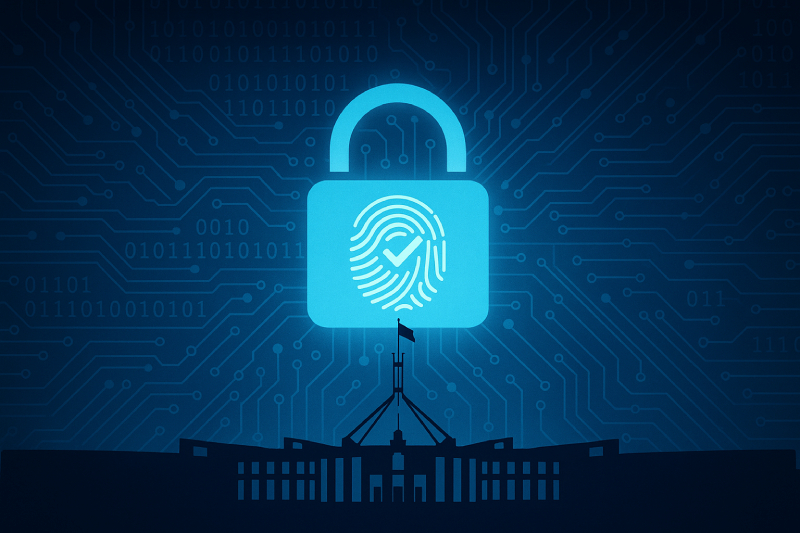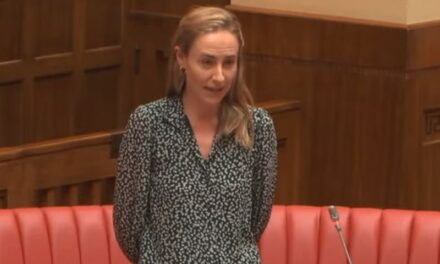Australia’s under-16 social media ban, set to take effect in December, is drawing sharp criticism from the Aligned Council of Australia, which says the measure does little to protect children but risks advancing a Digital ID system that could track citizens online.
Barbara Mavridis, Vice-CEO of the Aligned Council of Australia, said the gaps in the under-16s bill should concern every parent.
“Most parents are asking the same question: If this bill is really about protecting children, why is Roblox — the platform children use the most — completely exempt?” Mrs Mavridis said. “When the key platform is excluded, the policy stops making sense. And when something doesn’t make sense, it usually means the purpose lies somewhere else.”
She said the “somewhere else” looks increasingly connected to Digital ID.
“This bill introduces age-verification for Australians while letting major platforms avoid real responsibility,” she said. “That makes no practical sense for child safety, but it does make sense if the goal is to establish identification processes that can later connect into the broader Digital ID system.”
Under the new framework, users of Facebook, Instagram, TikTok, Reddit, Threads, Snapchat, X (Twitter) and YouTube will soon need to prove their age. Other major platforms, including Discord, WhatsApp, Google Classroom, YouTube Kids and Roblox, are exempt.
Digital ID Act 2024
The Digital ID Act 2024 states participation is voluntary, but Mavridis said the reality is shifting toward coercion. “Voluntary systems can still be coercive when access to essential services becomes dependent on compliance,” she said.
Evidence of that shift is already appearing. One accountant told the Council he was forced to adopt the new MyID system — formerly MyGovID — to continue working through the ATO Tax Agent Portal.
“I was forced to ‘consent’ to Digital ID to access the ATO Tax Agent Portal,” he said. “They said it was just a new name — from MyGovID to MyID — but now it links everything together. I can’t do my job without it. They can turn on or off what I can access. It’s all happening in plain sight.”
Former MP Says Digital ID Is the Real Target
Former federal MP and current Mackay Regional councillor George Christensen said the new rules amount to a nationwide push toward Digital ID. Christensen is also Campaign Director for CitizenGo a community of active citizens who work together, using online petitions and action alerts as a resource, to defend and promote life, family, and liberty.
“This whole social-media age verification scheme is simply a backdoor push to get as many Australians as possible signed up to Digital ID,” Mr Christensen said. “From 10 December, your age or identity must be verified to access social media, and the easiest way to do that is through the government’s Digital ID system.”
He said the shift would change the nature of online access in Australia.
“If these laws take effect on 10 December, we will enter an era where internet access is not a right, but something we must obtain permission from the government to do,” he said.
Christensen warned that the identification push will not stop at social media.
“Once Digital ID becomes the standard way to prove your age online, it turns into a compulsory pass for everyday communication,” he said. “Today it is social media. Tomorrow it can extend to banking, travel and even political speech.”

Digital ID, Image by Gerd Altmann from Pixabay
Human Rights Concerns Widen the Debate
The Australian Human Rights Commission has warned the under-16 ban and Digital ID rollout could infringe on privacy, freedom of expression, freedom of association and access to information.
Liberal Party Senator Alex Antic has also raised concerns, saying Australians’ rights are “under attack” as identity-linked systems expand.
Mavridis said the broader issue is the weakening of parental responsibility and family autonomy.
“Raising children, teaching them, guiding them, helping them navigate the world, has always been the sacred responsibility of parents,” she said. “When government starts taking pieces of that role, it weakens the family bond. And once the family unit is weakened, everyone loses.”
She said Australians are right to question the intent of the new framework.
“If the primary goal was child safety, the obvious solution would be to regulate the platforms directly,” Mavridis said. “So parents are now asking fair, logical questions: Why target families instead of the companies? Why exempt the platforms children actually use? And why introduce identification requirements that reach far beyond children’s safety?”
The Aligned Council is encouraging Australians to remind service providers that Digital ID participation remains optional under Section 74 of the Act, and to insist on non-digital alternatives wherever possible.
For now, the government maintains the new laws are designed to protect children. But rights advocates warn the under-16 social-media ban may become the quiet foundation of a broader Digital ID system — one that links identity, behaviour and speech across everyday life.
CitizenGo Petition
CitizenGo believes that if the Liberal National Coalition reverses its previous support for social media age verification, the Senate could pass a repeal bill to pressure the government.
George Christensen started a petition to Liberal Leader Sussan Ley, Nationals Leader David Littleproud and the Liberal National Coalition leadership team – 2025/11/08.




